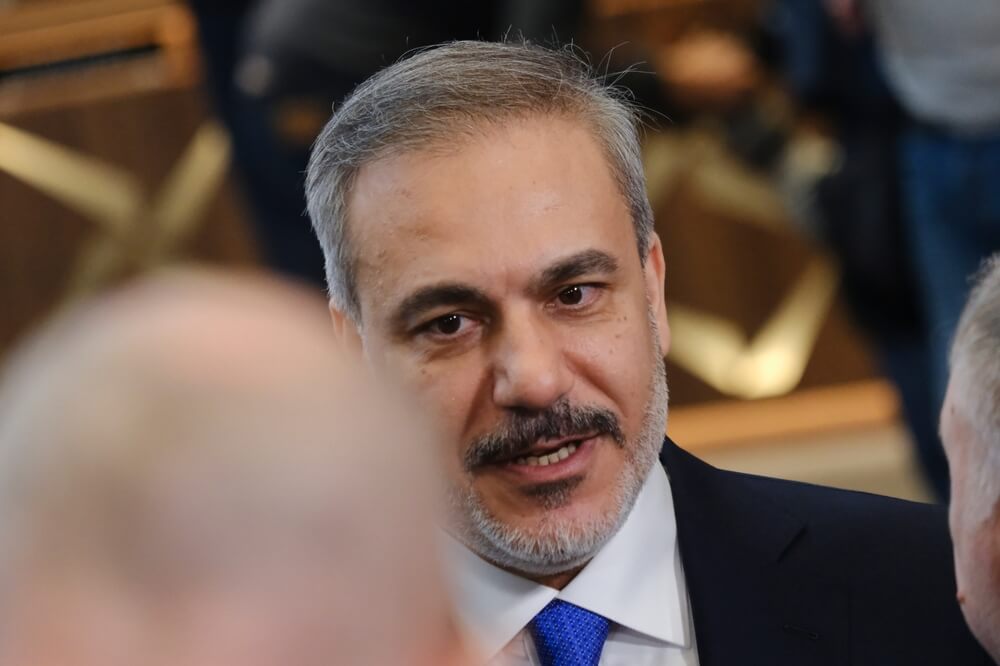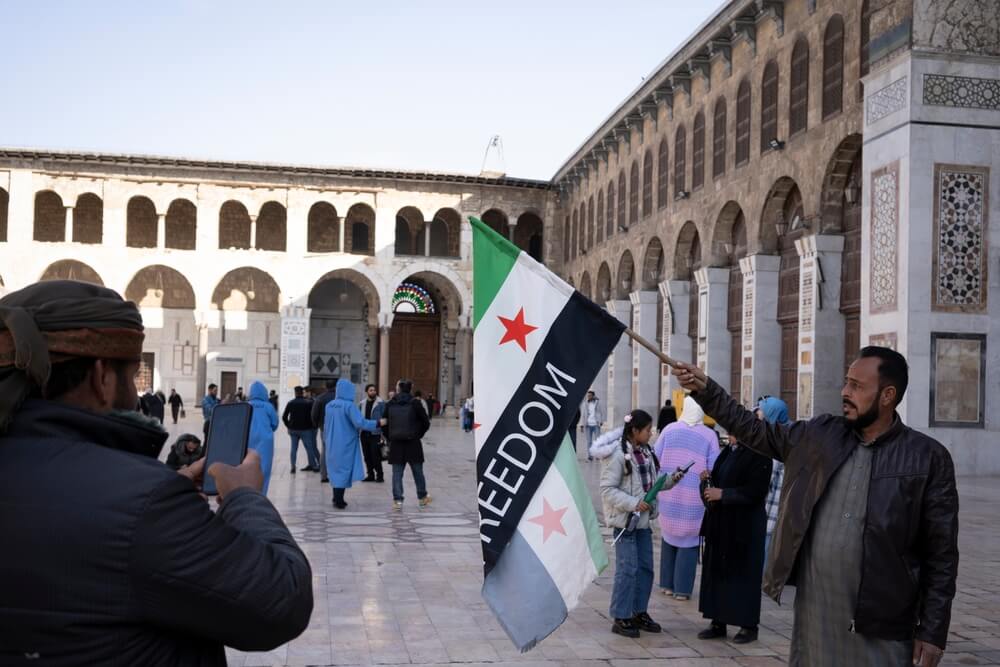In Syria's new political reality, after the collapse of the central government and the departure of Bashar al-Assad, the Syrian Kurds are, for the first time, openly formulating a demand that has been suppressed for years—the establishment of a federal model in which their autonomous administration would be constitutionally recognised and protected.
This demand is not new, but for the first time there is a chance to initiate a serious political and legal process. However, it has the potential not only to jeopardise Syria's stability but also to destabilise the region, particularly in relations with Turkey but also within the Syrian territory itself.
The Syrian Kurds, who make up around 10% of the population, have been systematically excluded from political life and deprived of their basic civil rights for decades. The Syrian regime systematically denied their identity and rights throughout the 20th century, especially after the Baath regime took power in 1963, leaving tens of thousands of Syrian Kurds stateless until the civil war began in 2011.
They were not allowed to study in their own language, form parties or run local institutions. Kurdish political activism was treated as a security threat.
The civil war changed everything. When the regime forces left the north-east part of the country in 2012, the Kurds, under the leadership of the Democratic Union Party (PYD) and its armed branch, the YPG, took control of much of the area that was later called "Rojava".
Within the Syrian Democratic Forces (SDF), the Kurds played a key role in the defeat of the Islamic State with the support of the USA, which earned them regional legitimacy but no political recognition.
Consensus within the community
Assad's departure from the country left Damascus in the hands of a still insufficiently consolidated transitional government, and the Kurds have further strengthened their negotiating position.
Officials of the Syrian Democratic Council (SDC), a political body representing Kurdish and allied forces, emphasise that they are not seeking secession but the permanent institutionalisation of autonomy through a new constitutional arrangement.
In an interview with Reuters this week, Badran Jia Kurd, one of the main political leaders of the Autonomous Administration of North and East Syria (AANES), said: "All Kurdish factions had agreed on a common political vision which emphasises the need for a federal, pluralistic, democratic parliamentary system".
In the same interview, he emphasised the need for the new Syria to be a "federal, pluralistic, democratic parliamentary system" that recognises its ethnic and religious diversity.
The Kurdish representatives envisioned a federal Syria in which the north-eastern region would have the status of a federal entity
The Kurds emphasise that such a model would not only guarantee the rights of the Kurds but also those of other minorities (Assyrians, Armenians, and Turkmen) and local Arab communities in the north-east.
The Kurdish representatives envisioned a federal Syria in which the north-eastern region (Rojava/AANES) would have the status of a federal entity.
In practice, this means maintaining the existing Kurdish institutions of self-government, the right to use the Kurdish language as an official language, control over the local police and part of the security forces, and the management of a significant part of the economic resources in the region (proposals made by the Kurds as part of the Geneva process, which was renewed after Assad's departure).
Parallel to Iraq
Kurdish leaders have avoided using the term "federalism" publicly in recent years, knowing that the term alarms many in Syria. Instead, they have spoken of "democratic autonomy" and "decentralisation".
Now, emboldened by the new circumstances, they openly use the term "federal system" and believe that the time has come to institutionalise what already exists de facto on the ground.
The Kurdish vision includes constitutional guarantees that the autonomous administration will not be abolished, that the SDF will become part of the national armed forces but retain a regional role, and that Kurdish cultural rights will be protected.
Damascus officially rejects any division of jurisdiction along ethnic lines
In the talks with the new authorities in Damascus, the Kurdish negotiators cite examples such as federal Iraq, where Kurdistan has its own parliament and Peshmerga forces, as a possible model.
However, they point out that the Syrian model would be specific—Rojava is not seeking an ethnically pure "Kurdish republic" but a multi-ethnic autonomous area within Syria.
Damascus, which is under a transitional military-civilian administration, officially rejects any division of jurisdiction along ethnic lines.
Turkey’s opposition
The Syrian opposition, although still fragmented, ironically shares this view, partly due to ideological differences and partly out of fear that Kurdish federalism would provide scope for the demands of other minorities and cause further fragmentation of the country.
But the most dangerous opponent of the Kurdish federal agenda remains Turkey. For Ankara, any institutional form of Kurdish autonomy in Syria is a strategic threat, as it sees it as strengthening the separatist narrative among Turkish Kurds and their PKK party.
 For Ankara, any institutional form of Kurdish autonomy in Syria is a strategic threat - Turkish FM Hakan Fidan
For Ankara, any institutional form of Kurdish autonomy in Syria is a strategic threat - Turkish FM Hakan Fidan
Turkish Foreign Minister Hakan Fidan said last month that Turkey does not recognise any structures that treats the PYD and YPG as legitimate negotiating partners and will act pre-emptively if necessary.
The United States remains the formal protector of Kurdish forces, but its support has clear limits. State Department officials do not mention federalism as a legitimate option, referring instead to "local administration in the northeast" to clearly avoid confrontation with NATO ally Turkey.
A February 2025 report by the Washington Institute for Near East Policy states, "The US sees the Kurds as the key factor of stabilisation but does not want to control their political ambitions."
Danger of new conflicts
The Kurdish demand for federalism can lead to two entirely different outcomes. The first, optimistic scenario suggests that the new Syrian constitution will incorporate the federal model with international guarantees as a stabilisation mechanism.
This would provide scope for Kurdish participation in the reconstruction of the country while preserving its territorial integrity.
A much more realistic, but also more dangerous, scenario in the current regional constellation is one that leads to escalation. If the negotiations between the Kurds and the new Syrian government fail and the constitutional process ignores the demands for autonomy, it is very likely that the existing tensions would turn into open conflict.
Turkey, which sees Kurdish autonomy as a strategic threat to its own security, could take advantage of the political vacuum and unclear jurisdictional boundaries to launch a new military operation in north-east Syria with the aim of eliminating Kurdish forces from the area along the border.
Such an action would come as no surprise - Ankara has already intervened once in a similar constellation without any significant international resistance.
The transitional authorities in Damascus could attempt to forcibly reintegrate the north-east into the central government structure
At the same time, in order to demonstrate control and legitimacy, the transitional authorities in Damascus could attempt to forcibly reintegrate the north-east into the central government structure.
Such a move, relying on allied militias and regional support, would have both symbolic and practical value but would inevitably lead to conflict with the Kurdish forces that have spent years establishing and defending their autonomy.
In such a scenario, the Kurds would remain isolated between hostile regional powers. The Kurds could be left betrayed by their international partners and pressured from outside by the Turkish military and from within by Syrian attempts at centralisation if the West does not provide clear guarantees and the US keeps its distance to avoid upsetting Turkey.
The result of such a confrontation would not just be a localised conflict but also a new wave of instability in post-war Syria that could threaten the entire region.
Constitutive factor of the new Syria
The most sensible solution for all parties is therefore an agreement — however fragile it may be. Both sides are already showing signs of flexibility: the Kurds are ready to formally be part of Syria and even fly a new flag, and Damascus has recognised the Kurds (at least declaratively) as an "essential part of the people," to whom it will guarantee civil rights.
It will be crucial that international mediators monitor the process and guarantee the implementation of the agreements reached. Next year, the establishment of a temporary political framework is realistic; the Kurds could be granted temporary autonomy for 2–3 years, during which cooperation with the central government would be tested until the political scene stabilises.
 At a time when Syria is trying to define its own future after Assad, the Kurdish demand for a federal system should not be dismissed as extremist or separatist
At a time when Syria is trying to define its own future after Assad, the Kurdish demand for a federal system should not be dismissed as extremist or separatist
During this time, the technical issues of administrative integration and revenue sharing would be resolved.
If this phase is relatively successful, federalism would then be legitimised by a new constitution and confirmed in elections— which would finally make the Kurds a constitutive factor of the new Syria.
At a time when Syria is trying to define its own future after Assad, the Kurdish demand for a federal system should not be dismissed as extremist or separatist.
It is the result of real political and security realities on the ground, and ignoring this demand will not restore stability but, on the contrary, increase instability.
For the international community, this is a test: does it support inclusive political models that reflect reality, or does it favour a status quo that has bred chaos and terror?
For Turkey, this is the moment to decide whether it will respond with force forever or agree to long-term dialogue. And for the new authorities in Damascus, this is a question of political survival: will they continue the policy of centralism that has brought down the state, or provide scope for a new structure in which federalism does not mean the end of Syria but is perhaps the only way for the country to survive?